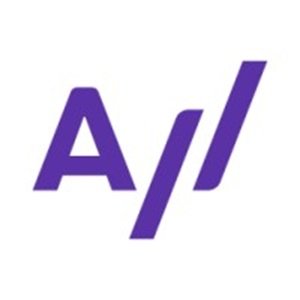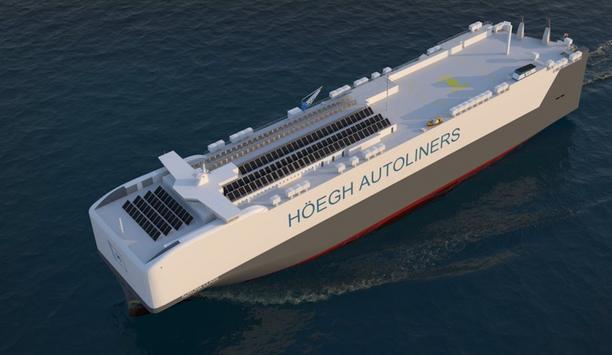Accelleron - Experts & Thought Leaders
Latest Accelleron news & announcements
Hanwha and Accelleron have performed an engine part load optimisation (EPLO) for Höegh Autoliners supporting long-term energy efficiency for its 7,850 CEU (Car Equivalent Units) car carrier Höegh Detroit. The success of the project to improve the vessel’s Carbon Intensity Indicator (CII) rating has led to an order for EPLOs on a further seven vessels owned or operated by Höegh. At a recent sea trial, EPLO demonstrated a fuel saving of 10g/kWh, equivalent to 5% of total fuel consumption. The improvement not only enables the vessel to operate in a high CII rating but also provides substantial operating cost reduction in terms of fuel costs and EU ETS expenses and reduced CO2 emissions. Installation of components Höegh Detroit was also fitted with a new propeller that enabled the vessel to reach the maximum speed Working with engine builder Hanwha Engine Co, Accelleron optimised both engine tuning and turbocharger configuration, including the installation of components more suitable to the vessel’s lower speed profile. Turbocharger nozzle rings, turbine blades and compressor wheels were all adapted, alongside various engine parameters, optimising efficiency for a de-rated engine output of 79% of the original maximum continuous rating, tailor-edged to the new propulsion upgrade. During the project, Höegh Detroit was also equipped with a new propeller that enables the vessel to reach the same maximum speed as before the modifications, the only difference is the lower fuel consumption. Impact of EPLO optimisation Sebjørn Dahl, Chief Operations Officer at Höegh Autoliners, said: “Operating with lower engine power is one of several energy efficiency measures being deployed by Höegh Autoliners as part of our commitment to being a pioneer in sustainable deep-sea shipping. The fuel efficiency impact of EPLO optimisation on Höegh Detroit exceeded our expectations, safeguarding the vessel’s long-term energy efficiency and market value. We are confident of similar success in future EPLO projects.” “Sustainability and emission reduction is at the core of Höegh Autoliners’ strategy. This joint project with Accelleron and Hanwha shows very good results and is an example of decarbonisation in practice," said Sebjørn Dahl, COO, Höegh Autoliners. IMO’s CII regulations Operating at reduced ship speeds is a joint measure that directly reduces the carbon footprint of shipping More than 60 percent of the world’s ships of 400 gross tons (GT) or more are required to comply with IMO’s CII regulations. The energy intensity criteria are becoming stricter every year driving the decarbonisation of the maritime industry. As a result, many shipping companies are investigating and implementing a series of measures to improve the efficiency of their existing fleet to ensure they remain attractive in a highly competitive market. Operating at reduced ship speeds is a common measure that directly reduces the carbon footprint of shipping; a 5% reduction in speed reduces CO2 emissions from a voyage by 10% and the required propulsion power by 15%. However, most marine engines are designed to provide optimum performance at the speed for which the ship is designed, and reduced speed often operates the engines outside of the optimum power range. EPLO adapts the turbocharger and engine settings to the new load requirements further improving efficiency and combustion quality. Accelleron’s EPLO upgrade solution Accelleron has received orders for more than 20 EPLOs to date, many for multiple sister vessels, as shipowners seek cost-effective solutions to extend compliant service life on existing vessels. EPLOs can be undertaken by Accelleron as the turnkey solution provider or in conjunction with the original engine builder. Accelleron, Product Manager Upgrades, Matthias Reichmann, said: “The phenomenal efficiency improvement delivered for Höegh Autoliners shows that EPLO – when performed optimally and with an associated optimisation of turbochargers and engine settings– is among the best and most cost-effective solutions for reducing a vessel’s carbon intensity. Accelleron’s EPLO upgrade solution delivers peace of mind for shipowners dealing with complex decarbonization demands, a simple and effective measure contributing to compliance with greenhouse gas regulation while benefitting from substantially reduced fuel costs.”
Accelleron has signed a Turbo LifecycleCare service agreement with Grandi Navi Veloci (GNV), an Italian shipping company specialising in coastal navigation and passenger transport in the Mediterranean. The five-year agreement covers the maintenance and servicing of more than 100 turbochargers across GNV's fleet of 28 ships. Accelleron offers comprehensive support Accelleron will provide comprehensive support, including spare parts and labor readiness, focused on maintaining turbochargers and thereby, ensuring continued reliability for the MSC Group subsidiary. The agreement is tailored to deliver structured maintenance planning and financial predictability, providing GNV with the peace of mind that comes with expert service and support. Accelleron and GNV partnership GNV Chief Technical Officer - Davide Orecchia, said: "We firmly believe that having a reliable partner like Accelleron to maintain and service our turbochargers is crucial to our operations. This agreement gives us confidence that the turbochargers on our vessels will remain in excellent condition, allowing us to focus on providing exceptional service to our passengers and customers." Turbo LifecycleCare agreements offer foreseeable budgeting and cost-saving efficiency Turbo LifecycleCare agreements offer foreseeable budgeting and cost-saving efficiency for operators of Accelleron turbochargers. The agreements cover standard spare parts, wear and tear and labour, with Accelleron reducing operators’ risk and administrative burden by assuming responsibility for maintenance planning and scheduling. All service is carried out by accredited Accelleron engineers using Accelleron spare parts, ensuring quality and speed of service. Worked closely with GNV GNV was founded in 1992 and is today part of the MSC Group. It operates 31 lines between Sardinia, Sicily, Spain, France, Albania, Tunisia, Morocco and Malta. Accelleron Italy Managing Director - Paolo Musso, said: "With this contract, we underscore our dedication to meeting customer needs through high-quality service and a structured approach to maintenance. Our team has worked closely with GNV to understand their requirements, and we believe this agreement reflects our commitment to excellence in the maritime industry."
HD Hyundai Marine Solution has signed an agreement with Greek operator - Neptune Lines Shipping and Managing Enterprises SA to provide Engine Part Load Optimisation (EPLO) services for four car carriers. HD Hyundai Marine Solution partnered with Accelleron to launch the EPLO service, receiving the first order for one ship in October 2023. Fuel efficiency and performance Most marine engines are built to provide optimal fuel efficiency and performance for the speed and environment for which the ship is designed. However, more than 60 percent of the world's ships of 400 gross tons (GT) and above are required by the International Maritime Organization (IMO) to comply with the IMO's Energy Efficiency Existing Ship Index (EEXI) and Carbon Intensity Indicator (CII) regulations to reduce greenhouse gas emissions. Eco-friendly solution EPLO is an eco-friendly solution that adjusts factors including the amount and timing of fuel injection As a result, many shipping companies are considering engine power limitations, operating at reduced speeds with engine output reduced by up to 70%. EPLO is an eco-friendly solution that increases combustion efficiency by matching the turbocharger to the new load requirements, as well as adjusting factors including the amount and timing of fuel injection and fuel-air mixture ratio. These adaptions can improve fuel efficiency by as much as 6 grams per kWh, with an equivalent reduction in carbon emissions. Profitable navigation "With EPLO, Accelleron is assisting the maritime industry to not only boost the competitiveness of their vessels but also to achieve profitable navigation towards their mid-term decarbonisation goals,” said Matthias Reichmann, Global Product Manager Upgrades at Accelleron. An official from HD Hyundai Marine Solution said, "We will contribute to carbon reduction activities in both the shipbuilding and maritime sectors with various eco-friendly solutions that meet market needs."










